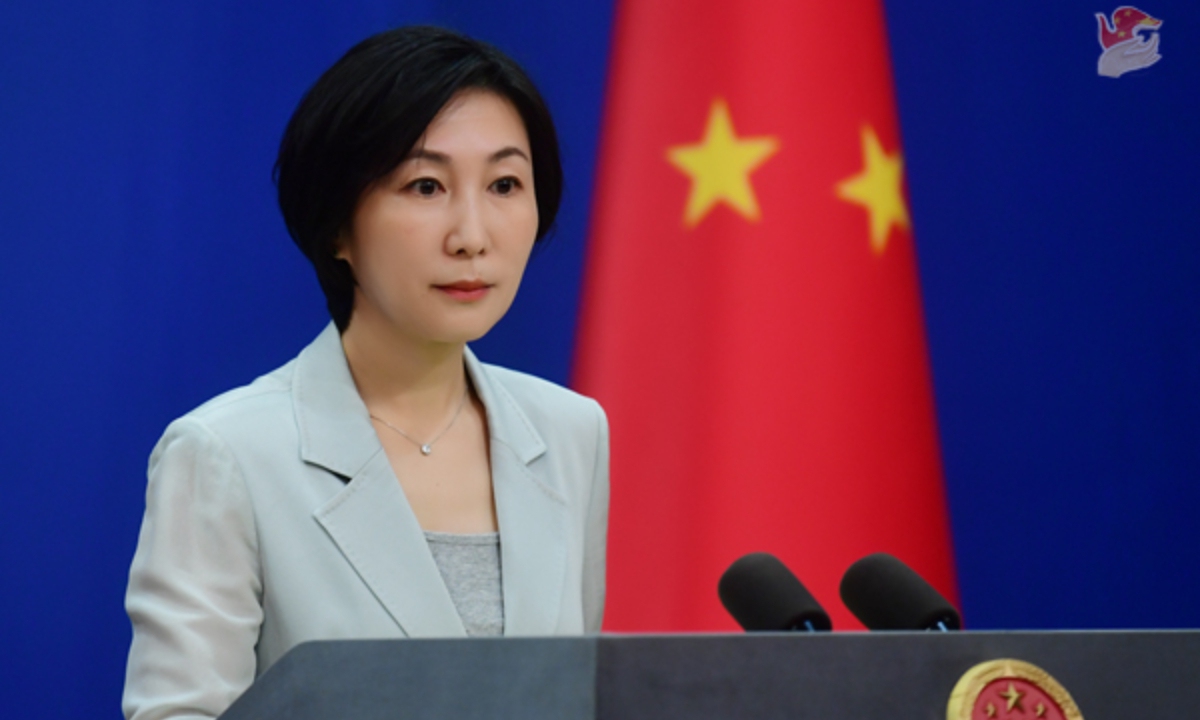
Foreign Ministry Spokesperson Mao Ning Photo: Ministry of Foreign Affairs
The US government has kept expanding its scope of surveillance, meddling in other countries' domestic affairs and interfering in international affairs, which runs counter to international law and the fundamental principles of international relations, Chinese Foreign Ministry commented on the Section 702 of US' Foreign Intelligence Surveillance Act (FISA) which allows the US intelligence agency to conduct unauthorized surveillance of non-US individuals abroad. The spokesperson added that "The more targets the US spies on, the fewer friends it has. The US needs a better sense of boundary and less obsession for control."
During a press briefing on Thursday, media mentioned that US National Security Council member Joshua Geltzer said that Section 702 of the US Foreign Intelligence Surveillance Act (FISA), an important legal basis for US intelligence authorities to eavesdrop on non-US citizens overseas and step up international surveillance without authorization, will expire on December 31. It was estimated that nearly 60 percent of President Biden's daily intelligence brief came from these "big ears."
The warrantless government surveillance authority slated to expire in days is closer to lasting for at least a few more months after the US Senate on Wednesday local time passed an annual defense policy bill that included a temporary extension.
In response to that, Chinese Foreign Ministry spokesperson Mao Ning said the US Foreign Intelligence Surveillance Act (FISA), adopted after Watergate, was originally aimed at preventing government authorities from abusing power and carrying out arbitrary eavesdropping.
However, Section 702, added in 2008, permit the National Security Agency to carry out eavesdropping and surveillance without obtaining an individualized court order, Mao said.
After that, the US government has been expanding the scope of eavesdropping and surveillance to interfere in other countries' internal affairs and meddle in the normal course of international affairs. This practice runs counter to international law and basic norms governing international relations, Mao said.
"The more targets the US spies on, the fewer friends it has. The US needs a better sense of boundary and less obsession for control," Mao added.
Global Times




